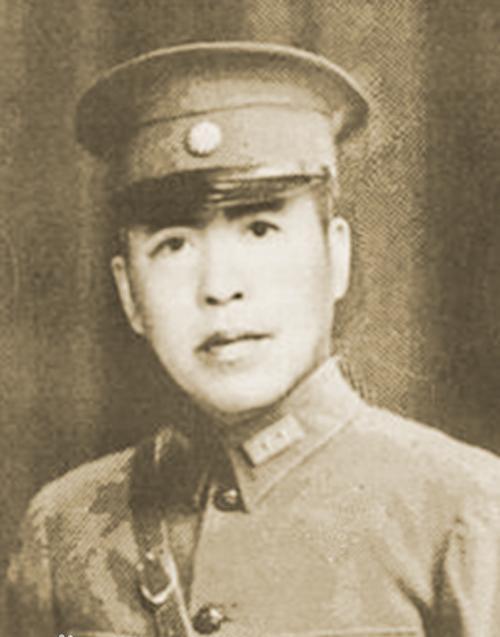Last time, when talking about "who were the main generals of the Nationalist 9th Army Group Army in the Battle of Songhu", the commander of the 18th Division of the 8th Army was Zhu Yaohua.

Before talking about Zhu Yaohua, let me tell you about a character that everyone is more familiar with, he is Zhang Huizhen. Zhang Huizhan is well known, because the great man once mentioned him in his poem "Fisherman's Pride and Anti-First Great "Encirclement and Suppression"": "The sky is red with frost, and the heavenly soldiers are angry. The fog was full of longgang and dark, and in unison, Zhang Huizhen was caught in front of him..." Zhang Huizhen was the commander of the 18th Division of the Nationalist Army at that time.
Zhu Yaohua was the nephew of Zhang Huizhan, a senior Kuomintang general who was captured and executed by the Red Army during the Red Army period, when Zhu Yaohua was only a brigade commander of the 18th Division.
After the outbreak of the War of Resistance Against Japan, Zhu Yaohua became the commander of the 18th Division. In the middle of the Battle of Songhu, he led his troops to Shanghai to participate in the war.
The Battle of Songhu was the first large-scale battle between China and Japan, with more than 1 million troops invested by both sides. The Battle of Songhu, known as the "meat grinder" by historians, involved an average of more than 3,000 casualties per day, which shows the fierceness of the battle.
According to relevant historical records, on October 25, 1937 alone, the Japanese army dispatched more than 100 aircraft to indiscriminately bombard the positions of the 18th Division and the surrounding areas, dropping more than 100 tons of bombs, and destroying the fortifications of the 18th Division's positions. When the Japanese army entered the position of the 18th Division, Zhu Yaohua, the commander of the division, was not afraid of danger, organized death squads many times, joined hands with grenades, rushed into the enemy group, fought desperately until late at night. On the 26th, due to the enemy being outnumbered and without support, the position held by the 18th Division led by Zhu Yaohua was lost.
For the loss of the position, Zhu Yaohua was devastated, deeply felt that he had no face to see the "father and elder of Jiangdong", so he wrote down the last words of "sorry for the country and sorry for the people" with hatred, and raised his pistol to his heart... Fortunately, just as he was firing, his guards pounced and pushed the muzzle aimed at the heart towards the right chest. Death passed him like this. Later, in the Shanghai concession, a French doctor treated Zhu Yaohua for free, and after more than forty days, Zhu Yaohua finally recovered a life, but his shoulder blade was left with a disability.
Regarding Zhu Yaohua's feat, Guo Moruo praised in an article: "If chinese soldiers are like Zhu Yaohua, China will not fall..."
After Zhu Yaohua recovered from his injuries, he repeatedly asked Chiang Kai-shek to return to the front line of the anti-Japanese resistance. However, Chiang Kai-shek considered Zhu Yaohua's defeat in the Battle of Songhu and was very unimpressed with him, so he did not agree to let him return to the front line, but chose to let him go to the Seventh Theater of Operations in Guangdong as the chief military commander.
After the victory of the War of Resistance Against Japanese Aggression, Zhu Yaohua did not want to repeat his uncle's mistake of fighting a civil war, so he resolutely applied for retirement and demobilization and return to the field.
Back at home, Zhu Yaohua cut off all political contacts and concentrated on reading and learning words. In 1949, his old subordinates and relatives left the mainland to flee to foreign countries and Taiwan, and they even bought him a plane ticket to let him leave, but he insisted on staying, because he always believed: "He is a patriotic general recognized by both the Kuomintang and the Communist Party, and the new regime may not give him a bowl of rice to eat, right?" ”
However, the weather is unpredictable. How will he end?
After the founding of New China, his good friend Xiao Jinguang at that time intended to let him work in the mountains, but Zhu Yaohua refused. Later, Xiao Jinguang was transferred to Qingdao, and Zhu Yaohua remained in Hunan. Until 1951, Zhu Yaohua, who was still an enlightened gentleman during the land reform, was shot at the age of 60 in the town rebellion because he was a senior official in the Kuomintang military circles.
Related Reading:
In the Battle of Songhu, who were the main generals of the Nationalist 9th Army who participated in the battle?